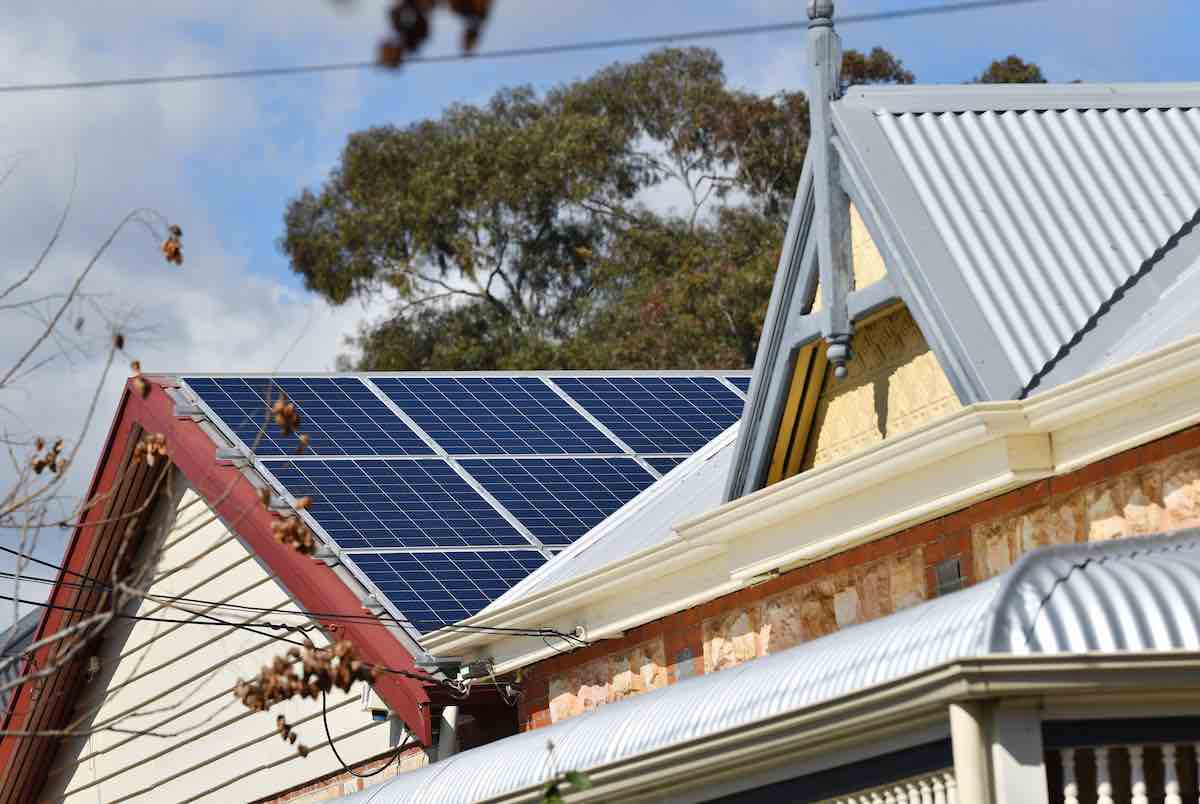

AAP Image/David Mariuz
Australian households could save $9.3 billion on energy bills each year by investing in the untapped solar potential of residential rooftops across the nation, a new report has found.
The Solar Citizens study, released on Sunday, found the nationwide investment would pay for itself in just over five years, and would deliver household savings of $1390 a year on average to millions of Australians.
The findings follow two major solar energy announcements from the federal government in recent weeks, including a $1 billion program designed to boost locally made solar panels.
The new report, based on analysis from the University of NSW, found that while 3.68 million Australian homes had solar panels installed, millions more households were missing out on the technology.
The study identified 45.8 gigawatts of “untapped photovoltaic potential” on residential rooftops, particularly on social housing, apartment buildings and rental homes.
UNSW School of Photovoltaic and Renewable Energy Engineering senior research fellow Mike Roberts, who led the study, said the analysis showed many households would benefit from renewable energy with targeted national investments.
“We found there is potential for just over three gigawatts of power on apartments, two gigawatts on social housing, and something like 12 gigawatts on rental housing,” he said.
“A big part of the population has been excluded at the moment but there are solutions.”
The research found a national scheme to install solar panels on 5.7 million homes currently without them would cost $9.8 billion a year for five years, creating 48,000 jobs during that time, but energy savings would surpass the cost within 5.3 years.
With solar panels installed, Australian homes would save $9.3 billion a year for 20 years, it found, with individual households saving as much as $1560 on their energy bills annually.
Solar Citizens national campaigns director Joel Pringle told AAP the study showed people living in apartments or renting a home were often unable to access renewable energy, which would benefit their budgets and the environment.
“There’s a massive potential for solar panels in the private rental market,” he said.
“If we could meet the solar potential for private rentals, for houses that would mean $2.5 billion in energy bill savings or $400 million for people who are renting in apartments.”
Mr Pringle said installing solar panels on social housing should be a simple decision for governments, but incentives, rebates and minimum rental standards would be needed to assist and motivate private landlords to make the switch.
“The upcoming budget is the opportunity for the federal government to let Australians know where they stand on addressing barriers to electrification and rooftop solar uptake,” he said.
The call comes days after Prime Minister Anthony Albanese announced plans to introduce more financial support for local clean energy products, under a Future Made in Australia Act, and weeks after launching the government’s Solar SunShot program to provide incentives to build solar panels in Australia.
AAP
This post was published on April 14, 2024 2:28 pm
Australian hardware and garden store giant says it has reached 100 per cent renewables, with…
Data used to showcase the downward impact of renewable energy on power prices contained a…
Most so-called ‘community batteries’ are actually installed by electricity networks, but this local group managed…
Rising energy bills are driving a surge in complaints. The NSW Energy Ombudsman wants better…
Australians are often being misled when they try to make sustainable electrical appliance choices, and…
China EV giant bows to trend of offering "complete solutions" for home energy, with launch…